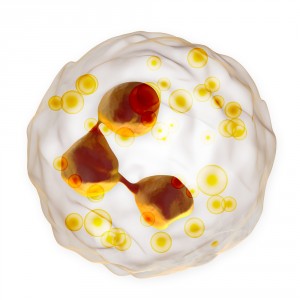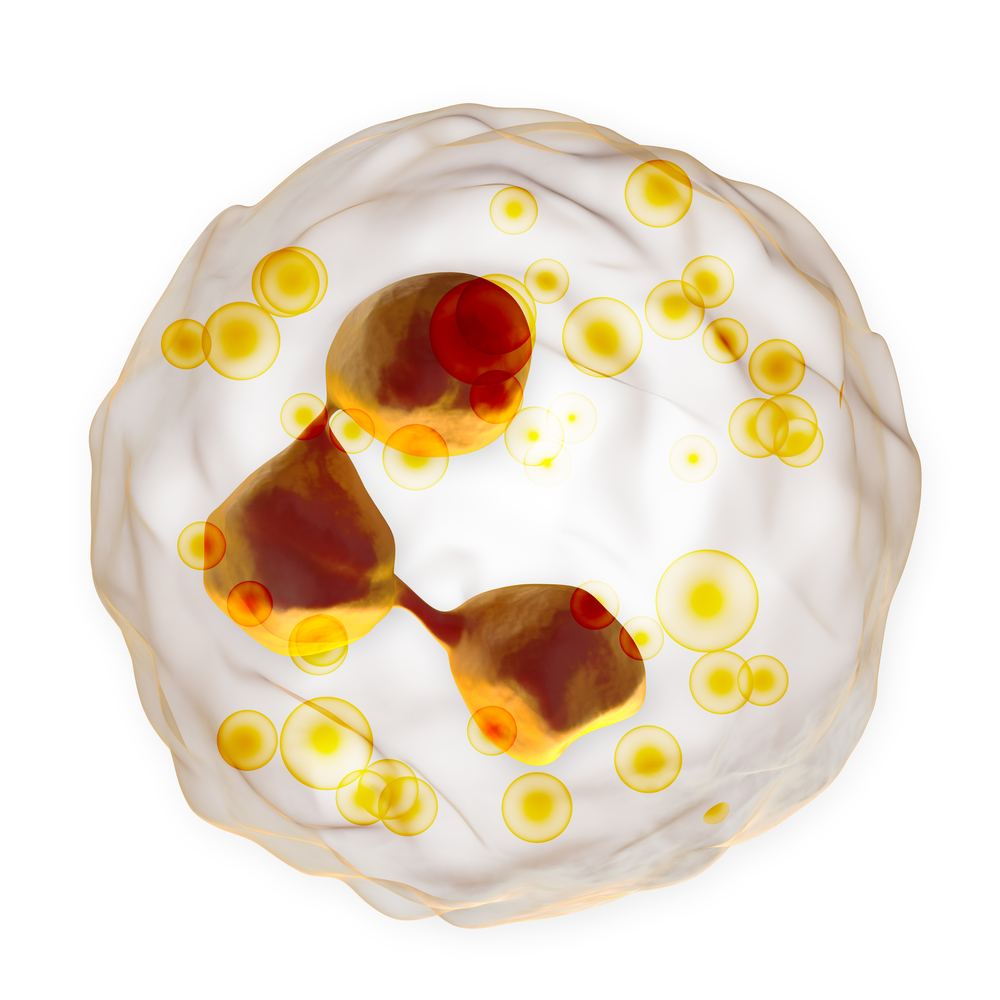 In a recent study titled “Inhibition of PAD4 activity is sufficient to disrupt mouse and human NET formation”, published in Nature Chemical Biology, an international team of researchers has identified selective PAD4 inhibitors, with potential implications for novel cancer immunotherapies.
In a recent study titled “Inhibition of PAD4 activity is sufficient to disrupt mouse and human NET formation”, published in Nature Chemical Biology, an international team of researchers has identified selective PAD4 inhibitors, with potential implications for novel cancer immunotherapies.
Protein arginine deiminase 4 (PAD4) is an enzyme responsible for the conversion of the amino acid arginine into the amino acid citrulline (citrullination). Predominantly expressed in granulocytes, it is strongly linked to diverse diseases, including cancer. As such, PAD4 is overexpressed in several tumors, affecting p53 function and downstream pathways. Furthermore, PAD4 is also linked to diseases characterized by aberrant levels of neutrophil extracellular traps (NETs).
In this new study, researchers identified the first highly potent PAD4-specific reversible inhibitors and defined their new inhibitory mechanism, confirming the enzymatic role of PAD4 in NET formation.
The team screened full-length PAD4 against GlaxoSmithKline’s DNA-encoded small-molecule libraries, which resulted in the identification of the inhibitor GSK121. After further optimizations, the team identified two additional inhibitor compounds, GSK199 and GSK484.
To further understand the mechanism of these molecules, the team solved crystal structures of human PAD4 complexed with either GSK199 or the closely related inhibitor GSK147, observing that both compounds bound in the same manner. Additionally, both GSK199 and GSK484 showed negligible off-target activity against a panel of 50 unrelated proteins.
The team then tested the capacity of these compounds to inhibit citrullination in neutrophils stimulated with calcium ionophore or bacteria, along with their effects on in vitro NET formation in mouse and human neutrophils. The results showed that neutrophil pretreatment with GSK484 and GSK199 significantly diminished citrullination and NET formation. Furthermore, mouse neutrophils showed no signs of either nuclear swelling or chromatin decondensation with PAD4 inhibitors.
Upon human neutrophil treatment, GSK484 caused a significant reduction in diffused NETs while GSK199 showed a less marked inhibition.
The results from this study will allow future research on the therapeutic potential of PAD4 inhibitors. As the authors write in their study, “these highly selective, new tool molecules are now available to unlock the complex biology of NETosis further and represent potential therapeutic interventions”.


